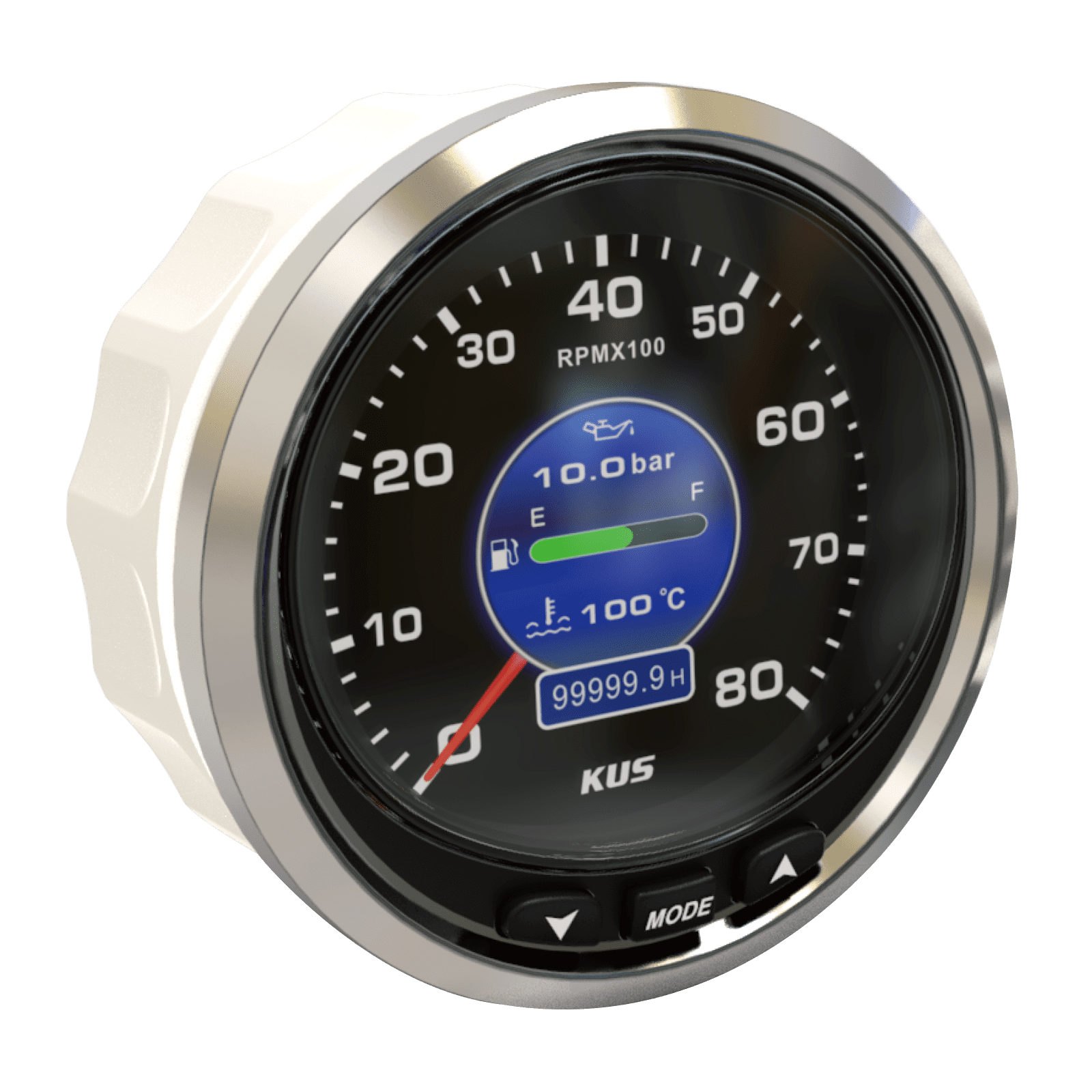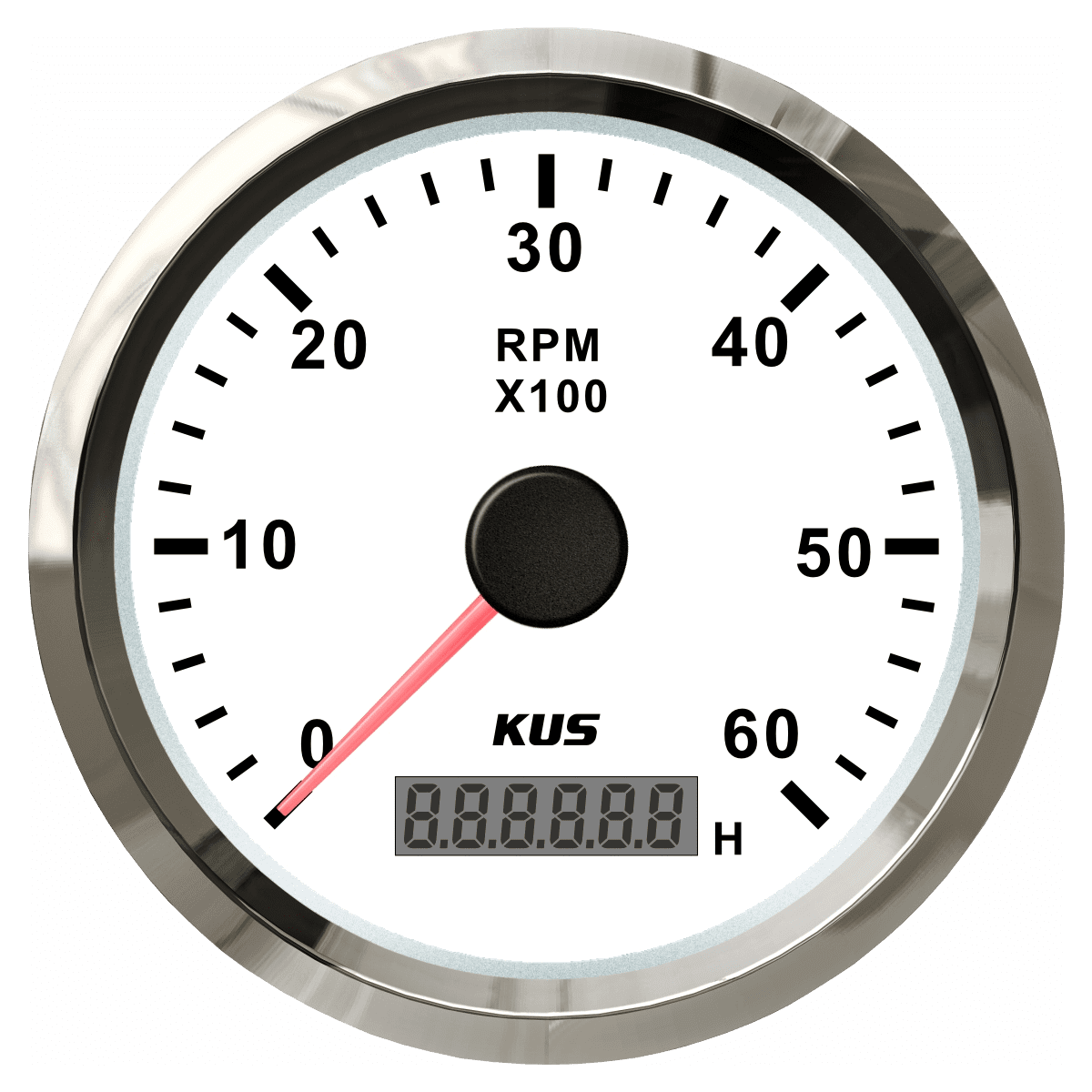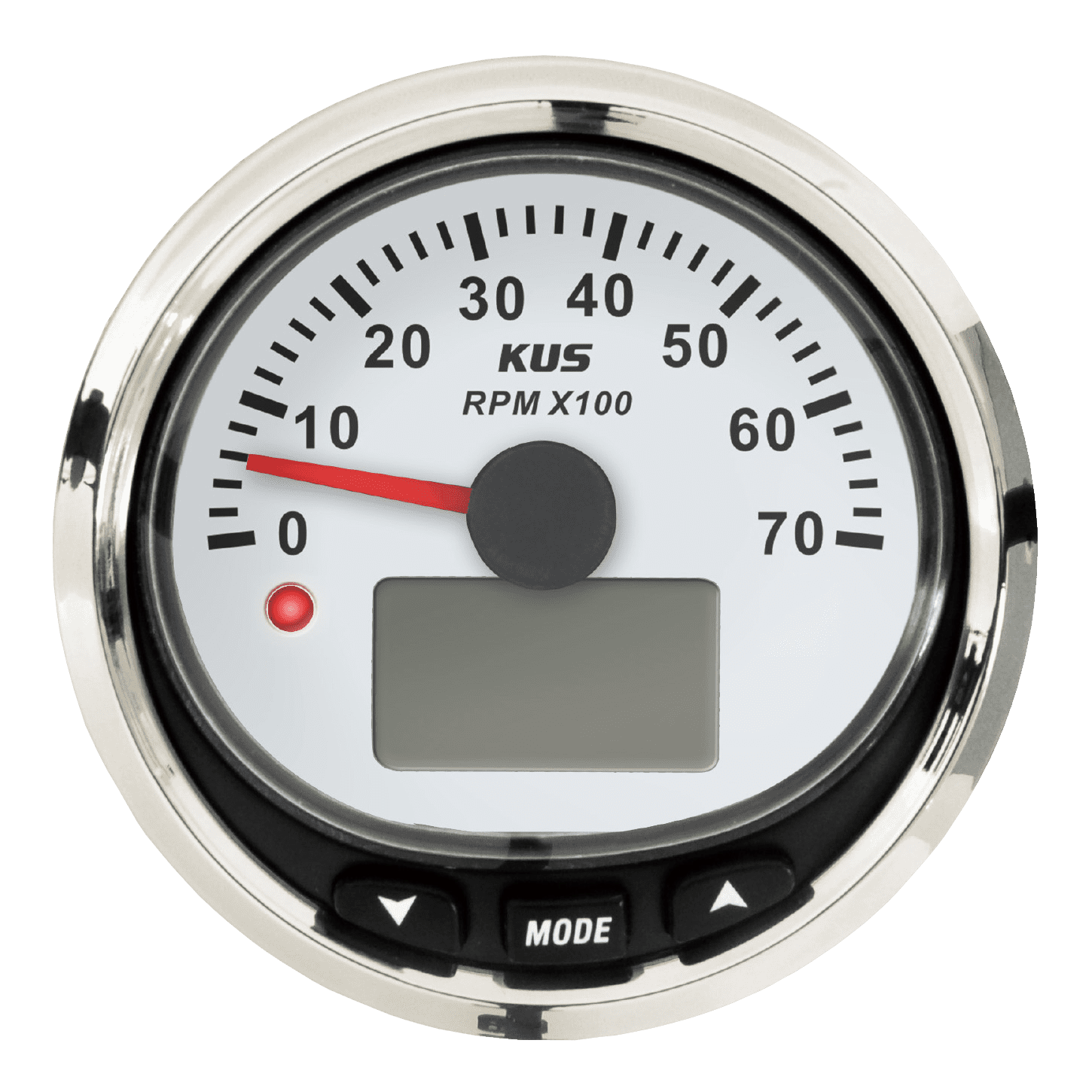A tachometer is an instrument that measures the working speed of an engine, typically in revolutions per minute (RPM). It is commonly used in cars, boats, planes, and other vehicles. Most tachometer gauges have either an analog (dial) or digital (LCD or LED screen) display.
Digital tachometers are increasingly common on the market due to their reliability. They include fewer moving parts, which increases the life of the component. Analog options are generally more prone to failure, which is further exacerbated by them having moving parts, as the location of a tachometer is usually close to the engine bay where vibrations are the strongest.
KUS manufactures analog and digital tachometer gauges for vehicle and marine applications. Our KMG Touch/Button Gauge is a multifunctional instrument with tachometer functionality. We also manufacture an NMEA Tachometer Gauge compatible with NMEA 2000 systems.
What is the Use of a Tachometer?
A tachometer helps gauge how hard your vehicle’s engine is working, regardless of whether that vehicle is an automatic or manual transmission (road vehicle) or marine gear (boat).
According to HomeSteady, “machinery typically has an optimal working speed; if it’s running too fast, it might suffer damage. If it’s running too slow, there might be a problem with the machine or its power source. For example, poor lubrication, mechanical friction, or too great of a load might be slowing it down. A tachometer accurately indicates [working] speed.”
For example, in an automatic transmission vehicle, a tachometer can tell you if the transmission shift points are in range or if the transmission is slipping. In a manual transmission vehicle, you can use a tachometer to determine the optimal time to shift gears (but it is not required).
Meanwhile, in marine applications, a tachometer allows you to identify the best operating range for your engine while ensuring that you don’t exceed your maximum engine speed. It also may secondarily inform decisions the vessel’s owner makes surrounding performance and fuel consumption.
Types of Tachometers
Tachometers may be mechanical (analog) or electronic (digital).
According to Homesteady, “mechanical tachometers use electrical and magnetic forces to measure rotation speed; though they employ principles of electricity, they don’t need batteries. Electronic tachometers use electronic circuitry such as digital counters to determine RPMs. They use electric power, so they require batteries or other sources of current.”
In addition, tachometers may be contact or non-contact. A contact tachometer touches the rotating part you are measuring and is more precise. A non-contact tachometer uses light from a laser to illuminate a mark on the rotating equipment; this is typical in certain handheld models.
How Does a Tachometer Work?
Mechanical and electronic tachometers operate differently. According to ItStillRuns, “The operation of a mechanical tachometer is similar to that of a mechanical speedometer. A flexible cable with a rotating shaft connects a moving part in the engine or transmission to the gauge. Inside the instrument, the rotating shaft controls the position of a needle to indicate the engine speed. An electronic tachometer uses a magnetic pickup positioned near a rotating engine part to produce electrical pulses at a frequency proportional to the engine speed. Circuitry in the meter converts the pulse frequency for the display of engine RPM using a digital readout.”
Is a Tachometer Necessary?
Most manual or automatic transmission cars have a tachometer. While not required, of all the gauges in a boat, a tachometer is one of the more important ones due to its ability to help avoid unnecessary wear and tear and detect engine speed issues before things get worse. Overall, a tachometer is a very useful instrument that can help you maintain optimal engine speed.
KUS Tachometers: A Reliable Option for Your Vehicles
KUS manufactures analog and digital tachometers for vehicle and marine applications. What sets us apart from the competition? Our commitment to quality. All of our parts are rigorously tested before we send them out to customers to ensure a very low failure rate. We also use the highest quality materials available. KUS tachometers are a reliable option for your vehicles.
If you want to learn more about our high-quality tachometers or want to place an order, you can reach out to one of our representatives via the Contact Us page or visit our online store.



